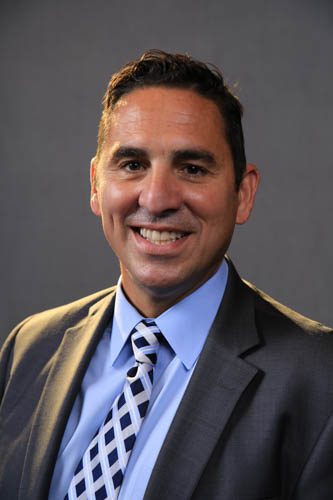
The finalists for WashingtonExec’s Pinnacle Awards were announced Oct. 11, and we’ll be highlighting some of them until the event takes place live, in-person Nov. 30.
Next is Intelligence Industry Executive of the Year (Public Company) finalist Chris Bellios, who’s chief operating officer at Hexagon US Federal. Here, he talks career inflection points, primary focus areas going forward, proud career moments and more.
What was a turning point or inflection point in your career?
The first 15 years I worked for the military and as a civilian government employee. In the military, for the most part, you are in the business of supporting a mission, and in the government your goals are to meet missions by executing and spending a budget and succeeding on the goals of that budget.
In 2000, I moved from government and military to industry, which completely flipped the scales from a focus on spending money to, to one of earning money, trust and confidence; and succeeding in technology delivery. It was really a big mindset shift in that succeeding was now based on contractual success, relationship success and winning contracts.
What are you most proud of having been a part of in your current organization?
Looking back over the past five years since starting at Hexagon US Federal, we can say we’ve made a transformation in culture here. Some of it was intentional, some of it was natural, but both were driven by goals for us to change the face, attitude and enthusiasm around the organization.
A lot of that is in the people that we’ve brought in, the work that we’re pursuing and the way we go about it. We like to think we’re really inclusive in terms of our leadership team and how we involve them in what we’re doing in discussions and our strategy.
We put together annual meetings where we talk about these things, and then we coalesce around them and move out. I think over the last five years, that’s resulted in positive changes not only to the organization, but also to the culture, the people and how we carry out our business.
What are your primary focus areas going forward, and why are those so important to the future of the nation?
Particularly in the world that we’re in, supporting the Intel Community, there are two things that are really important for us to focus on. First, understanding the potential threats ⏤ security threats, counterintelligence threats, cyber threats ⏤ and really understanding that the volume of has increased. Second, we need to anticipate and consider possible outcomes. We need to provide feedback and recommendations to policy makers and our federal, DOD and IC customers on what is likely to happen and what we can do. That’s the heart of intelligence, and it’s important for the future of our wellbeing and our government.
How do you help shape the next generation of government leaders/industry leaders?
At the forefront of what I feel is most important for me at Hexagon US Federal is the building of our Leadership Development Program, which invests in leaders at all levels of responsibility and tenure ⏤ new leaders or potential leaders, leaders who have been in place for a while and executive leaders. For individuals who have been in leadership for a while, it’s important they continually expand their leadership knowledge and keep open to learning new things.
That’s the foundation of why we put together an LDP Certified Manager Workshop, which we hold two times a year. We’ve completed four cohorts, and that’s been an investment back into people as individuals, and also from the corporate standpoint of driving a leadership culture. Ongoing training is extremely important, and understanding there are different levels of leadership and investing in all of them is crucial.
Looking back at your career, what are you most proud of?
At this point in my career, it’s where I’ve established coaching and mentoring relationships with people and they still seek out that feedback, or comment on how the relationship has helped them somewhere along the way. That is the most rewarding because you can use your experiences, both good and bad, to guide someone else. It’s not just an investment of work time, but an investment in coaching and sharing your philosophy, and you don’t always get that opportunity.
It’s personally rewarding because if you can make a difference for someone that’s positive, you feel like you made an impact. Certainly, the financial impacts you make at a company are important, but they fade. Investments in people are more long-term and rewarding.

